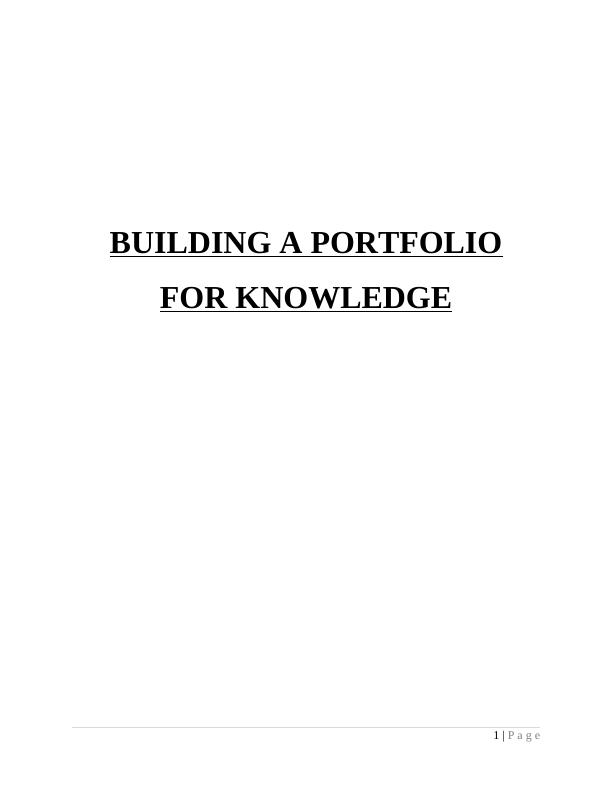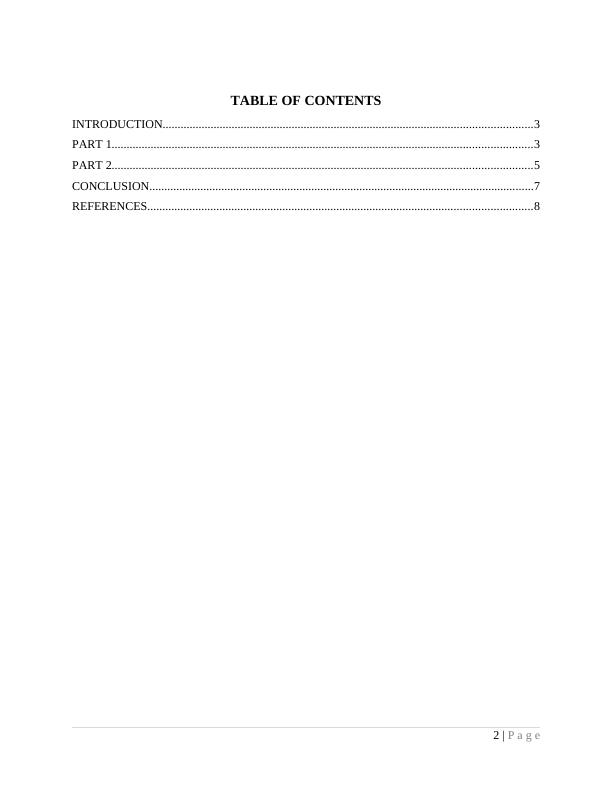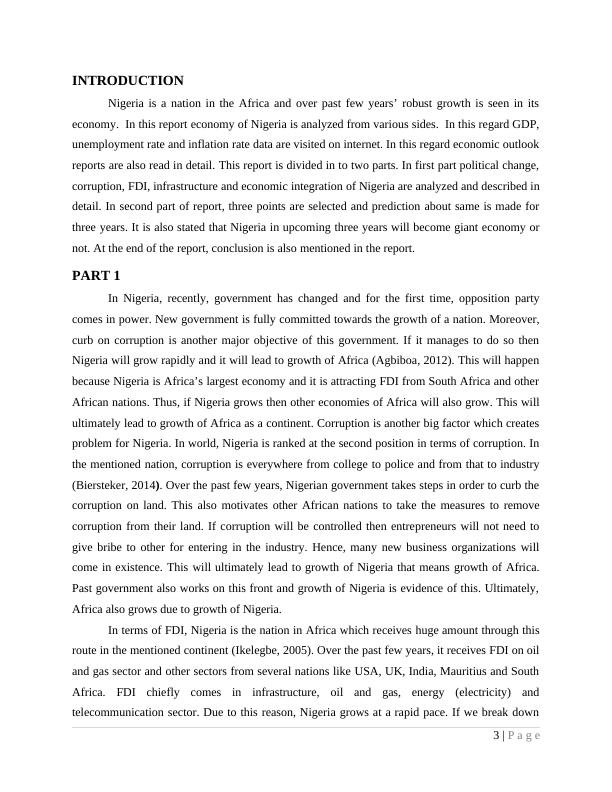Building a Portfolio for Knowledge | Report
Added on 2019-12-03
9 Pages2719 Words150 Views
BUILDING A PORTFOLIOFOR KNOWLEDGE1| P a g e

TABLE OF CONTENTSINTRODUCTION...........................................................................................................................3PART 1............................................................................................................................................3PART 2............................................................................................................................................5CONCLUSION................................................................................................................................7REFERENCES................................................................................................................................82| P a g e

INTRODUCTIONNigeria is a nation in the Africa and over past few years’ robust growth is seen in itseconomy. In this report economy of Nigeria is analyzed from various sides. In this regard GDP,unemployment rate and inflation rate data are visited on internet. In this regard economic outlookreports are also read in detail. This report is divided in to two parts. In first part political change,corruption, FDI, infrastructure and economic integration of Nigeria are analyzed and described indetail. In second part of report, three points are selected and prediction about same is made forthree years. It is also stated that Nigeria in upcoming three years will become giant economy ornot. At the end of the report, conclusion is also mentioned in the report.PART 1In Nigeria, recently, government has changed and for the first time, opposition partycomes in power. New government is fully committed towards the growth of a nation. Moreover,curb on corruption is another major objective of this government. If it manages to do so thenNigeria will grow rapidly and it will lead to growth of Africa (Agbiboa, 2012). This will happenbecause Nigeria is Africa’s largest economy and it is attracting FDI from South Africa and otherAfrican nations. Thus, if Nigeria grows then other economies of Africa will also grow. This willultimately lead to growth of Africa as a continent. Corruption is another big factor which createsproblem for Nigeria. In world, Nigeria is ranked at the second position in terms of corruption. Inthe mentioned nation, corruption is everywhere from college to police and from that to industry(Biersteker, 2014). Over the past few years, Nigerian government takes steps in order to curb thecorruption on land. This also motivates other African nations to take the measures to removecorruption from their land. If corruption will be controlled then entrepreneurs will not need togive bribe to other for entering in the industry. Hence, many new business organizations willcome in existence. This will ultimately lead to growth of Nigeria that means growth of Africa.Past government also works on this front and growth of Nigeria is evidence of this. Ultimately,Africa also grows due to growth of Nigeria.In terms of FDI, Nigeria is the nation in Africa which receives huge amount through thisroute in the mentioned continent (Ikelegbe, 2005). Over the past few years, it receives FDI on oiland gas sector and other sectors from several nations like USA, UK, India, Mauritius and SouthAfrica. FDI chiefly comes in infrastructure, oil and gas, energy (electricity) andtelecommunication sector. Due to this reason, Nigeria grows at a rapid pace. If we break down3| P a g e

End of preview
Want to access all the pages? Upload your documents or become a member.
Related Documents
Issues in Global Business and Strategic Conceptslg...
|13
|3155
|201
(PDF) Strategic Management for Global Firmslg...
|17
|3896
|236
Issues in Global Business (Doc)lg...
|11
|2787
|48
Gross Domestic Product (GDP)lg...
|10
|1855
|16
China should expand bilateral trade with Sub-Saharan Africalg...
|6
|1785
|203
Social, Political and Economic Conditions of Nigeria: Impact of World Bank and IMFlg...
|11
|1666
|338
